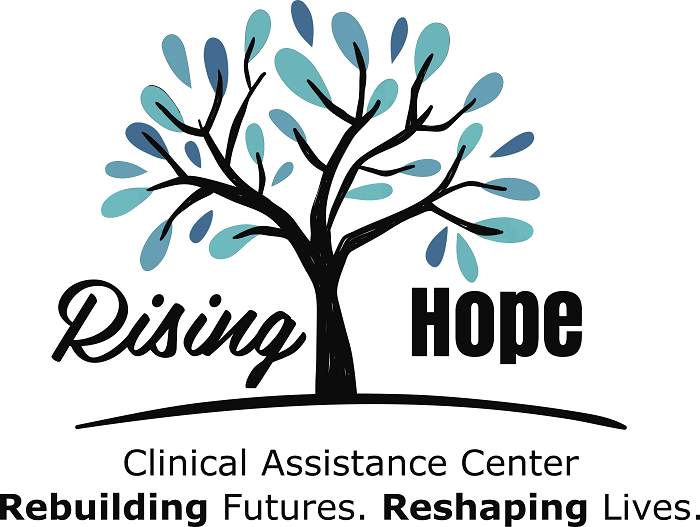

10 Ways to Practice Mindfulness
Traditional meditation may be the most common way to practice mindfulness, but did you know that simple everyday activities have the potential to improve your sense of awareness as well? Mindfulness is just another way of saying to be aware of the present moment or to focus your attention on something with no judgement or excessive thoughts interfering. Here are ten ways you can get started on practicing mindfulness now.
Feel your breath
Taking the time to breathe and just feel the oxygen enter your lungs, while releasing will increase your ability to be mindful of how you are feeling in the present moment. Be sure to integrate mindful breathing in your day by focusing your attention solely on inhaling and exhaling. You can do this especially if you are undergoing periods of stress or amid considerable amounts of highly rambunctious activity.
Be aware of when your mind has wandered
Oftentimes, our mind will wander and begin to ruminate on trivial or sometimes stress inducing situations. When you become aware that your mind has wandered, you allow yourself the opportunity to be in control of your thoughts and increase mindfulness overall. Keep in mind, part of practicing healthy mindfulness in being aware of your wander thoughts is to also not judge them. Otherwise, you’ll be going down a rabbit hole which will have the opposite effect.
Writing a to do list
Writing a to do list is not just a natural habit for the highly organized Type A personalities but a practical step in being mindful of your daily activity. Simply writing out your plans, goals, tasks that need to be completed is a surefire way to be attentive in keeping your activity in check. The next time you have some down time, get a planner and write down a checklist of everything you need to do for the day or week. You might find yourself having more peace of mind once your list of to-dos begins to fade out one by one.
Exercise
Exercise isn’t just about staying fit and looking good; it enriches your mental health and fosters total wellness. Exercising naturally increases endorphins, boosts your mood and allows you to be focused and mindful of the present moment – or in this case, your physical activity. Any type of exercise will do. Whether it’s strength training, cardio conditioning or just stretching; the goal is to feel your body, get into a nice breathing rhythm and have a clear intention on getting those gains. Now get down and focus on those squats!
Reading
Many people love to read to escape their daily stresses. But did you know that integrating mindfulness in this leisure activity can improve cognitive development and allow you to become a more reflective individual? Studies have also shown that reading reduced the rate of cognitive decline in dementia patients. Researchers examined patients who reported more early-life and late-life cognitive activity such as reading, writing and playing games had a slower rate of decline. So be sure to crack open a book every now and then and pay closer attention to what you’re absorbing.
Acknowledge Feeling(s)
Acknowledging your feelings is a great mindfulness practice. When you take the time to recognize your emotional state, you are more inclined to take control of the outcome. For instance, those working on finding healthier ways to manage anger may take a time out to admit and accept that they are upset. This is so they can move on from that temporary feeling and prevent their emotions from dictating their behavior. You don’t necessarily need to control your emotions. It is normal to have feelings. Just remember that every emotion is temporary and has ebbs and flows. It may arise within you occasionally, but then dissipate. Once you realize that your emotions are fleeting, it becomes easier to let them pass and not influence your behavior. One wrong move from a short-lived feeling could totally jack up your day and leave you feeling silly in the end.
Practice Gratitude
Practicing gratitude is a great way to enhance your temperament and raise your general awareness. The gratitude exercise is a modest way to increase your sense of humility and can also improve your relationships. There’s even scientific evidence to back this up too. Researchers from the University of Nottingham have found that people who exercise gratitude tend to be more social, kind, helpful and giving – all qualities which tend to be good for one’s mental health.
Journal Mindfully
Using a journal provides many benefits when it comes to maintaining overall wellness. Writing down your thoughts or putting down how you feel in the moment or for that day allows you to take a step back and reflect. Forming a routine in journaling will improve your sense of mindfulness in the interim and long term.
Give yourself a Massage/Pampering Treatment
Acupuncture, massage therapy, or simply pampering yourself: whether that includes getting a facial, manicure or drawing a bubble bath is a great option to unwind and put all your energy into the physical aspect of healing your body and relieving stress. Even if a spa day isn’t in your budget this week, a great way to pamper yourself would be to cozy up under a warm blanket with a hot cup of tea or cocoa. It’s simple and completely free. These mindful self-care activities will get you through tough times and you’ll even come out looking and feeling good too!
Put Visual Reminders everywhere
For those that thrive on reminders, this practice will suit you well. Using post notes, pictures, or memorable items may be helpful in remembering to practice mindfulness. Placing visual reminders everywhere intertwines with ‘mindful seeing.’ The purpose of mindful seeing is to get you to consciously notice what you see and take your mind from a place of thinking and doing to just simply noticing. So, if you’ve been struggling with practicing overall mindfulness, take it easy. Mindful seeing is one of the simplest ways to master your sense of awareness.
Traditional meditation may be the most common way to practice mindfulness, but did you know that simple everyday activities have the potential to improve your sense of awareness as well?
Mindfulness is a great tool to help people understand, tolerate, and deal with emotions in a healthy way. It’s an effective method to get to know yourself and live in the present moment. This practice is powerful in therapy and is something anyone can do through simple everyday activities. Mindfulness is known to reduce chronic pain, alleviate gastrointestinal problems, improve quality of sleep, and relieve stress. So, the next time you’re feeling stiff, anxious or just foggy, take a moment to be implement a mindful technique in your daily activity.

